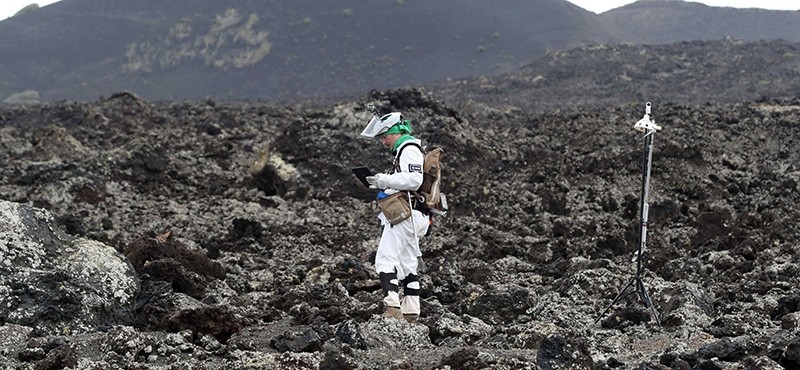
Worms have successfully reproduced for the first time ever in replicated Martian soil, according to scientists from Wageningen University & Research.
When biologist Wieger Wamelink discovered two worm offspring in his Mars soil experiment, it signaled a big win for agriculture on the Red Planet.
The university's research team has been growing crops in moon and Mars replicated soil since 2013, but the second generation of worms is the first hope for sustainable agriculture.
"The best surprise came at the end of the experiment when we found two young worms in the Mars soil simulant," Wamelink said in a press release.
Worms play a critical role in soil health, decomposing and recycling dead organic material to be reused by growing plants. They also aerate the soil with their tunnels, boosting soil's oxygen and water retention.
For the Mars experiment, researchers planted adult worms in Martian soil replicated using volcanic rock, fertilizing it with pig manure and leafy vegetables.
So far, the worms seem to be thriving. The next step of the experiment will be to observe whether the reproducing worms can successfully break down organic material and burrow in the rocky soil.
The ongoing study not only puts scientists one step closer to the Mars colonies Elon Musk aims for by 2024, but it may also give scientists more clues to why some farming practices fail on our own planet.
